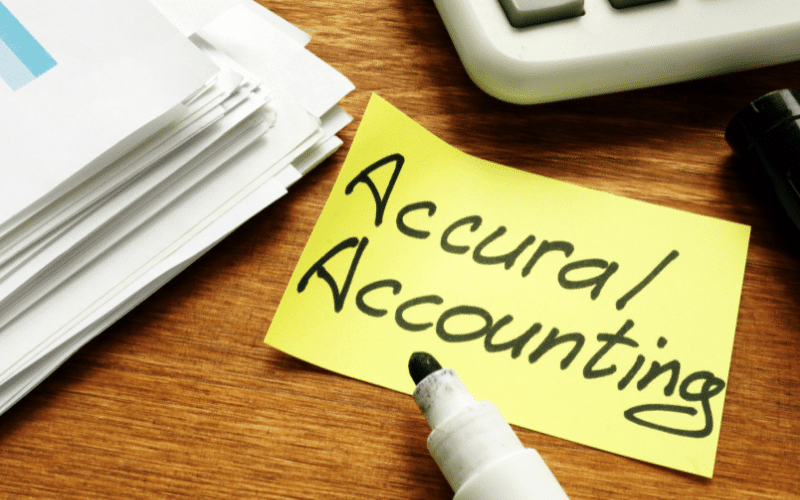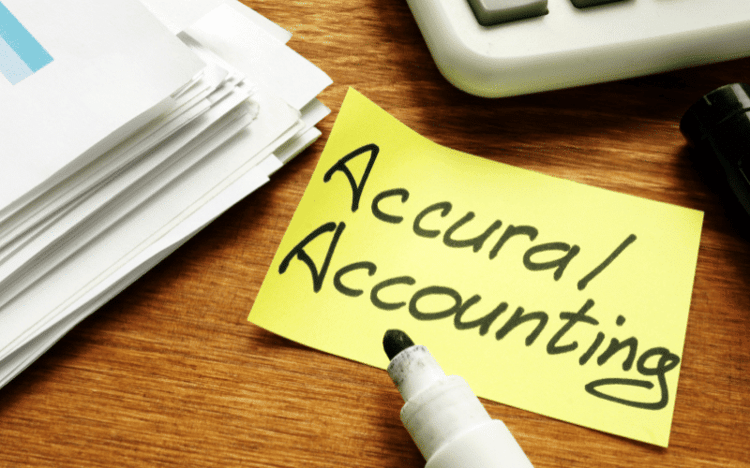Which Accounting Method Am I Using?
May 25th, 2022 | 6 min. read

Different people have different talents. Even if your skills with numbers allow you to do your business’s accounting, you may not have as great of strength in words. How are you supposed to know the name of the method you’re using?
Maybe you work with an accountant who’s never mentioned which method they use - and why would they? You don’t need to know this as their continuing client, and they want to keep your business.
If you don’t know the terminology behind what’s being done in your books, you’ll be a deer in headlights when a new accountant asks which accounting method you’ve been using. Luckily, there are clear signs to tell whether you use cash basis or accrual accounting.
CSI Accounting & Payroll has been taking on small business owners’ accounting for over 50 years. During that time, we’ve come to recognize that most owners don’t know which accounting method they use, even if they’re the ones doing the accounting for their business.
Here’s what other business owners who didn’t know their accounting method wanted to know:
- What is cash basis accounting?
- How can I tell if I use cash basis accounting?
- What is accrual accounting?
- How can I tell if I use accrual accounting?

What is Cash Basis Accounting?
Cash basis accounting is simple to understand. Essentially, cash basis accounting for small businesses is when you count income and expenses for the month in which they actually occur.
Let’s use the month of January as an example.
All money that arrives in January is counted as January’s income, and all money that goes out in January is counted as January’s expenses. Your accountant can assume that all of your activity that they see happened in January will be counted for January in your books.
Am I Using Cash Basis Accounting?
A majority of small businesses use cash basis accounting. You’re likely to use cash basis accounting if most of your cash flow occurs within a month or if you don’t hold the following into a new month:
- Expenses (Accounts payable)
- Income (Accounts receivable)
- Inventory
(Note: You can’t use the cash basis accounting method if you have inventory and total annual sales of over five million dollars.)
If you’re doing your own accounting, are you sure that your self-prepared financial statements are up to par?
Some retailers like gas stations, convenience stores, or other businesses with a lot of inventory can use cash basis accounting, but they won’t get accurate monthly or annual Profit and Loss Statements because their profit margins will not be correct. This is all resolved with the use of accrual accounting.
A major benefit of cash basis accounting is that it is simpler to do, so many accountants charge less for this method. Are you wondering how else you can save on your accounting fee? Look for a provider like CSI Accounting & Payroll that will offer a discount for bundling services!
What is Accrual Accounting?
Accrual accounting is a different concept. Essentially, accrual accounting is the opposite of cash basis accounting in that you count income and expenses for the month in which you recognize them.
Let’s use the month of January as an example.
For income, if you have accounts receivable, it may look like providing a service in January and having your customer pay you in February. Here, the income is recognized in your books when the service happened in January. This is true regardless of when your customer pays you, and if they don’t pay you, then you would write off the expense as uncollectable or bad debt.
For expenses, if you have accounts payable, it may look like incurring an expense in January and paying it in February. Here, the expense is recognized in your books when the expense was billed in January, not when the bill was paid in February.
For expenses, if you hold an inventory, it may look like bringing in a product, having longer than a month to try to sell it, and then paying for it after that point. The expense of the inventory goes for the month in which you sold it, not for the prior month in which you purchased it.
Am I Using Accrual Accounting?
Most small businesses don’t do this accounting method unless they have a large dollar amount in any of the following:
- Accounts receivable
- Accounts payable
- Inventory
(Note: You’re required to use the accrual accounting method if you have inventory and total annual sales of over five million dollars.)
As mentioned above in the cash basis accounting sections, some businesses with a lot of inventory can still use cash basis accounting, but only accrual accounting will give them accurate monthly and annual Profit and Loss Statements with correct profit margins.
One more benefit of the accrual method is that it can save you on taxes this year by pushing some of the amount into next year. However, this is not tax savings, just a tax deferral, and you’re likely to get charged more for using accrual accounting since it’s more work for your accountant.
Confidently Declare Your Accounting Method
Whether you’ve been doing your own accounting and were unfamiliar with the name of your method, or your accountant didn’t make you aware of their method, it can take a bit of reading or discussion to understand which one you use.
To recap, most small businesses use cash basis accounting, but yours may use accrual accounting if you have a large dollar amount in accounts receivable, accounts payable, or inventory, and you must use accrual accounting if you have an inventory and annual sales over five million dollars.
As you move forward with a new accountant, you should now have the understanding you need to tell them if your business uses cash basis or accrual accounting.
If you’re still looking for an accountant, you can schedule a free consultation with CSI Accounting & Payroll by clicking the button below.
Still wondering if you’re the right fit to work with CSI? Find out more here!
Bryan served as our Accounting & Tax Department Manager from 2019 to 2024. He earned his Accounting degree from St. Cloud State University in 2001, later becoming an Enrolled Agent. Before joining CSI, Bryan worked in financial reporting for the State of Minnesota, served as a Controller in private industry, and owned his own firm – AccountSource LLC – from 2005 until 2019 when it was acquired by CSI. In 2024, he stepped away to support his sister’s business during a time of serious illness – a true reflection of his character and commitment to family.
